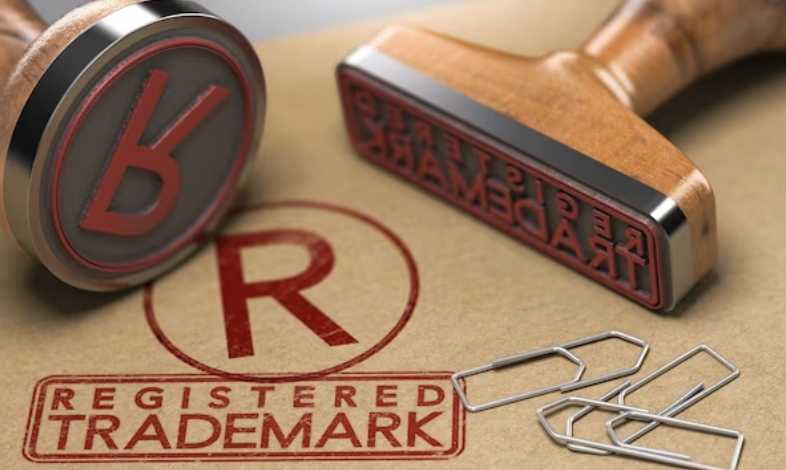Food and Drug Administration (FDA) compliance is a critical aspect of operating within the food and beverage industry. Ensuring compliance with FDA regulations is not only a legal requirement but also essential for maintaining product safety and quality. In this article, we will explore the role of FDA compliance lawyers in helping food and beverage businesses navigate the complex landscape of regulatory requirements.
Introduction to FDA Compliance Laws
FDA regulations govern various aspects of the food and beverage industry, including labeling, ingredient approvals, and manufacturing processes. Compliance with these laws is crucial to prevent risks to public health and avoid legal consequences.
Importance of Compliance for the Food and Beverage Industry
Compliance with FDA regulations is essential for protecting consumers from potential health hazards associated with food and beverage products. It also helps businesses maintain their reputation and credibility in the market.

Role of FDA Compliance Lawyers
FDA compliance lawyers play a crucial role in assisting food and beverage businesses in adhering to regulatory requirements. They provide expertise in interpreting and applying FDA regulations to ensure compliance at every stage of the production process.
Regulatory Expertise
FDA compliance lawyers possess in-depth knowledge of FDA regulations and stay updated on any changes or updates. They help businesses understand their obligations and navigate the complex regulatory landscape effectively.
Legal Guidance and Support
In addition to regulatory expertise, FDA compliance lawyers offer legal guidance and support to food and beverage businesses. They help companies draft compliant labeling, navigate ingredient approvals, and address any legal challenges that may arise.

Ensuring Product Safety and Quality
One of the primary responsibilities of FDA compliance lawyers is to ensure the safety and quality of food and beverage products. They work closely with businesses to implement robust quality control measures and address any issues related to product safety.
Navigating FDA Regulations
Complying with FDA regulations involves various aspects, including labeling requirements, ingredient approvals, and manufacturing processes. FDA compliance lawyers help businesses understand and fulfill these requirements to avoid regulatory violations.
Labeling Requirements
FDA compliance lawyers assist food and beverage businesses in ensuring that their product labels comply with FDA regulations. This includes accurately listing ingredients, nutritional information, and allergen warnings to provide consumers with transparent and informative labeling.

Ingredient Approvals
Before introducing a new ingredient or additive into a food or beverage product, businesses must obtain FDA approval. FDA compliance lawyers guide companies through the approval process, ensuring that all necessary documentation is submitted and requirements are met.
Manufacturing Processes
FDA regulations impose strict requirements on the manufacturing processes of food and beverage products. Compliance lawyers help businesses implement and maintain processes that meet FDA standards for safety, cleanliness, and quality control.

Common Challenges Faced by the Food and Beverage Industry
The food and beverage industry face several challenges when it comes to complying with FDA regulations. These challenges include changing regulations, product recalls, and legal liability for non-compliance.
Changing Regulations
FDA regulations are subject to frequent updates and changes, making it challenging for businesses to stay compliant. FDA compliance lawyers help companies stay informed about regulatory changes and adapt their practices accordingly.
Product Recalls
Failure to comply with FDA regulations can result in product recalls, which can be costly and damaging to a company’s reputation. FDA compliance lawyers help businesses implement preventive measures to minimize the risk of recalls and handle recalls efficiently if they occur.

Legal Liability
Non-compliance with FDA regulations can expose food and beverage businesses to legal liability, including fines, lawsuits, and damage to their brand reputation. FDA compliance lawyers work to mitigate legal risks and ensure that businesses operate within the boundaries of the law.
Benefits of Hiring FDA Compliance Lawyers
Hiring FDA compliance lawyers offers several benefits to food and beverage businesses, including risk mitigation, streamlined processes, and expert advice on regulatory compliance.
Risk Mitigation
FDA compliance lawyers help businesses identify and mitigate risks associated with non-compliance, reducing the likelihood of regulatory violations and legal consequences.

Streamlined Processes
By providing expert guidance and support, FDA compliance lawyers help businesses streamline their compliance processes, saving time and resources while ensuring adherence to FDA regulations.
Expert Advice
FDA compliance lawyers offer valuable expertise and advice on navigating complex regulatory requirements, helping businesses make informed decisions and avoid costly mistakes.
How FDA Compliance Lawyers Assist Food and Beverage Businesses
FDA compliance lawyers provide a range of services to assist food and beverage businesses in achieving and maintaining compliance with FDA regulations.
Audit Preparation
FDA compliance lawyers help businesses prepare for FDA audits by conducting internal audits, reviewing documentation, and ensuring that all regulatory requirements are met.

Legal Representation
In the event of an FDA investigation or enforcement action, FDA compliance lawyers represent businesses and advocate on their behalf, helping to resolve issues and minimize legal consequences.
Compliance Training
FDA compliance lawyers offer training programs to educate employees about FDA regulations, compliance requirements, and best practices for maintaining regulatory compliance.
Choosing the Right FDA Compliance Lawyer
When selecting an FDA compliance lawyer, food and beverage businesses should consider factors such as experience, expertise, reputation, and client references.
Experience and Expertise
It is essential to choose an FDA compliance lawyer with extensive experience and expertise in the food and beverage industry and FDA regulations.
Reputation
Reputation is crucial when selecting an FDA compliance lawyer. Businesses should research potential lawyers’ reputations and track records to ensure they are reputable and trustworthy.
Client References
Before hiring an FDA compliance lawyer, businesses should ask for client references and testimonials to assess their satisfaction with the lawyer’s services.
Cost Considerations
While hiring FDA compliance lawyers involves an initial investment, the long-term benefits of compliance and risk mitigation often outweigh the costs.

Initial Investment
The cost of hiring FDA compliance lawyers varies depending on factors such as the complexity of the case, the lawyer’s experience, and the services required.
Long-Term Savings
By helping businesses avoid regulatory violations and legal consequences, FDA compliance lawyers can save companies money in the long run by minimizing risks and ensuring compliance.
Case Studies
Case studies provide real-world examples of how FDA compliance lawyers help food and beverage businesses achieve and maintain compliance with FDA regulations.
Successful Compliance Strategies
Case studies highlight successful compliance strategies implemented by food and beverage businesses with the assistance of FDA compliance lawyers.
Impact on Business Operations
Case studies demonstrate the positive impact of compliance on business operations, including increased efficiency, reduced risk, and improved reputation.
Future Trends in FDA Compliance
The future of FDA compliance in the food and beverage industry is influenced by trends such as technology integration, global harmonization, and sustainability initiatives.
Technology Integration
Advances in technology, such as blockchain and artificial intelligence, are reshaping FDA compliance by improving traceability, transparency, and data management.

Global Harmonization
Efforts to harmonize food safety standards and regulations on a global scale are impacting FDA compliance requirements for food and beverage businesses operating internationally.
Sustainability Initiatives
Sustainability and environmental concerns are becoming increasingly important in FDA compliance, driving businesses to adopt eco-friendly practices and reduce their carbon footprint.
Conclusion
FDA compliance is a critical aspect of operating within the food and beverage industry, ensuring product safety, quality, and legal compliance. FDA compliance lawyers play a vital role in helping businesses navigate the complex regulatory landscape and achieve and maintain compliance with FDA regulations.
FAQs
- Why is FDA compliance important for the food and beverage industry?
- FDA compliance is essential for protecting consumers from potential health hazards associated with food and beverage products and maintaining product safety and quality.
- What are the consequences of non-compliance with FDA regulations?
- Non-compliance with FDA regulations can result in legal liability, fines, lawsuits, product recalls, and damage to a company’s reputation.
- How can FDA compliance lawyers help small businesses in the food industry?
- FDA compliance lawyers provide expertise and support to help small businesses understand and comply with FDA regulations, reducing the risk of regulatory violations and legal consequences.
- What are some recent updates in FDA regulations affecting the food and beverage industry?
- Recent updates in FDA regulations include changes to labeling requirements, ingredient approvals, and manufacturing processes to improve transparency and ensure consumer safety.
- Is it necessary for every food and beverage company to hire FDA compliance lawyers?
- While hiring FDA compliance lawyers is not mandatory, it is highly recommended for food and beverage companies to ensure compliance with FDA regulations and minimize legal risks.




